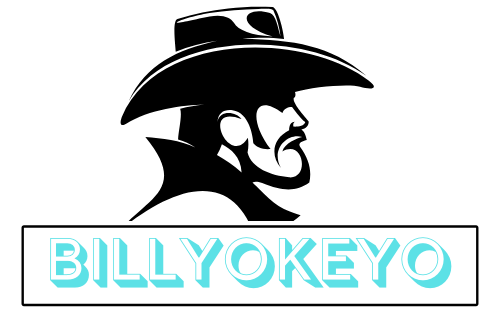What is an Akcinė Bendrovė?
In Lithuania, the term “akcine bendrove” (AB) refers to a public joint-stock company — a legal business entity where ownership is divided into shares. These shares can be publicly traded, depending on the structure of the company.
ABs are ideal for large-scale ventures, especially those seeking outside investment or planning an IPO. But they’re not just for corporations — entrepreneurs with big visions also set up ABs to enable future growth.
Why is this structure popular in Lithuania?
Lithuania’s strategic EU membership, transparent tax system, and modern legal infrastructure make it a hotspot for establishing a corporate presence. An Akcinė Bendrovė offers scalability, investor trust, and access to European capital markets.
🏢 Understanding Company Structures in Lithuania
Akcinė Bendrovė (AB) vs. Uždaroji Akcinė Bendrovė (UAB)
Both are joint-stock companies, but with a twist:
| Feature | AB (Akcinė Bendrovė) | UAB (Uždaroji Akcinė Bendrovė) |
|---|---|---|
| Public Trading | Allowed | Not allowed |
| Minimum Shareholders | 1 | 1 |
| Minimum Capital | €40,000 | €2,500 |
| Investor Attraction | High | Moderate |
| Governance Complexity | Higher | Lower |
Comparison with LLCs and Corporations Globally
An Akcinė Bendrovė is similar to:
-
A Public Limited Company (PLC) in the UK
-
A Corporation (Inc.) in the US
-
An Aktiengesellschaft (AG) in Germany
⚖️ Legal Definition of Akcinė Bendrovė
Lithuanian Civil Code Explanation
The Lithuanian Civil Code and the Law on Companies outline what defines an AB. Key takeaways include:
-
A company with share capital divided into shares
-
Shares can be traded publicly (if listed)
-
Limited liability for shareholders
-
Must follow corporate governance laws
Key Legal Features
-
Must be registered with the State Enterprise Centre of Registers
-
Legal entity with separate property
-
Acts through managing bodies (CEO, board)
🏗 Formation Process of an Akcinė Bendrovė
Step-by-Step Guide
-
Choose a company name
-
Prepare Articles of Association
-
Deposit share capital into a special bank account
-
Sign incorporation documents
-
Register with the Centre of Registers
-
Obtain VAT registration (if applicable)
-
Open operational bank account
Required Documentation and Capital
-
Articles of Association
-
Founder agreement
-
Shareholder data
-
Bank certificate confirming capital deposit
-
Address in Lithuania
The minimum capital for an AB is €40,000.
📊 Share Capital and Shareholder Requirements
Minimum Capital Requirements
The €40,000 minimum must be paid in full before registration. Capital can be raised through:
-
Cash contributions
-
Non-cash (in-kind) assets
Types of Shares and Ownership Rules
Shares can be:
-
Ordinary: basic rights (voting, dividends)
-
Preference: priority for dividends, but limited voting
A shareholder can be:
-
An individual
-
A legal entity (even foreign)
🧑💼 Governance Structure of an AB
Shareholders’ Meeting
The highest decision-making body, with powers to:
-
Approve financials
-
Elect/remove board
-
Amend Articles
Board of Directors and Supervisory Board
Mandatory if:
-
Capital exceeds €1 million
-
Required by shareholders
Duties include:
-
Strategic decisions
-
Appointing the CEO
-
Ensuring legal compliance
📑 Reporting and Compliance Obligations
Annual Reports and Financial Statements
Every AB must submit:
-
Annual financial statements
-
Management report
-
Auditor’s report (if applicable)
Deadlines typically fall by May 1st each year.
Audits and Regulatory Bodies
An audit is mandatory if:
-
Turnover exceeds set limits
-
Company is publicly listed
Regulated by:
-
State Tax Inspectorate (VMI)
-
Bank of Lithuania (for financial ABs)
💰 Taxation of Akcinė Bendrovė
Corporate Tax Rates
-
Standard Corporate Income Tax (CIT): 15%
-
Some incentives for SMEs or startup exemptions
Dividends, Withholding Tax, and VAT
-
Dividends: 15% withholding tax for individuals
-
Reduced rates or exemptions under double tax treaties
-
VAT: 21% standard rate if turnover exceeds threshold
📈 Advantages of an akcine bendrove
Scalability and Investment Opportunities
-
Easy to raise capital via shares
-
Ideal for large-scale operations
-
Professional image and trust from investors
Public Offering and Capital Markets Access
-
Ability to list on Nasdaq Vilnius
-
Transparent governance attracts foreign capital
⚠️ Disadvantages and Risks
Administrative Burdens
-
Higher setup costs and legal requirements
-
More paperwork and compliance monitoring
Legal and Financial Responsibilities
Directors and officers have:
-
Fiduciary duties
-
Exposure to penalties for non-compliance
🔁 How to Convert from UAB to AB
Requirements and Procedures
-
Increase capital to €40,000
-
Amend articles of association
-
Register new status
-
Inform tax and regulatory authorities
Strategic Benefits of Conversion
-
Easier to attract investors
-
Eligible for public listing
-
More visibility in local and international markets
🌐 akcine bendrove in International Business
Global Investor Perspective
Investors prefer ABs because they offer:
-
Transparent ownership
-
Transferable shares
-
Credibility in EU and beyond
AB as a Gateway to the EU Market
For non-EU entrepreneurs, Lithuania offers:
-
Business residency programs
-
Gateway to EU compliance, funding, and networks
🏆 Popular Lithuanian akcine bendrove Examples
Case Studies of Successful AB Companies
-
AB “Linas Agro Group” – Agri-business giant
-
AB “Ignitis grupė” – Energy conglomerate
-
AB “Vilniaus baldai” – Furniture manufacturer
Sector-Wise Distribution
-
Energy and Utilities
-
Finance and Insurance
-
IT and Telecommunications
-
Food and Agriculture
❌ Common Misconceptions
Myths Around Public Status
Not all ABs are publicly listed — many remain privately held while using the AB structure for flexibility.
Confusion with Similar Foreign Entities
Some confuse AB with AG (Germany) or Inc. (USA) — while similar, each has unique local compliance rules.
🔮 The Future of akcine bendrove in Lithuania
Legislative Updates
-
Ongoing digitization of company registration
-
Simplified online filing processes
-
Strengthening shareholder rights
Trends and Business Climate
-
More foreign-owned ABs
-
Rise in ESG-focused governance
-
Emphasis on corporate transparency
✅ Conclusion
The Akcinė Bendrovė is more than just a business structure — it’s a strategic asset for entrepreneurs and corporations in Lithuania and beyond. With the right setup and governance, it unlocks opportunities in public markets, investor relations, and EU-wide expansion.
Whether you’re planning to scale, raise capital, or build long-term trust, forming an AB could be your smartest move.
❓ FAQs
1. What does akcine bendrove mean?
It means joint-stock company in Lithuanian, similar to a public limited company.
2. Can foreigners own shares in an AB?
Yes, both individuals and companies can be shareholders.
3. What’s the minimum share capital for an AB?
The minimum required is €40,000.
4. Is an audit always required for ABs?
No — it depends on size, revenue, and legal status (e.g., publicly listed companies must audit).
5. How long does it take to register an AB in Lithuania?
On average, 5–10 business days, depending on document preparation and approvals.
You May Also Like:





